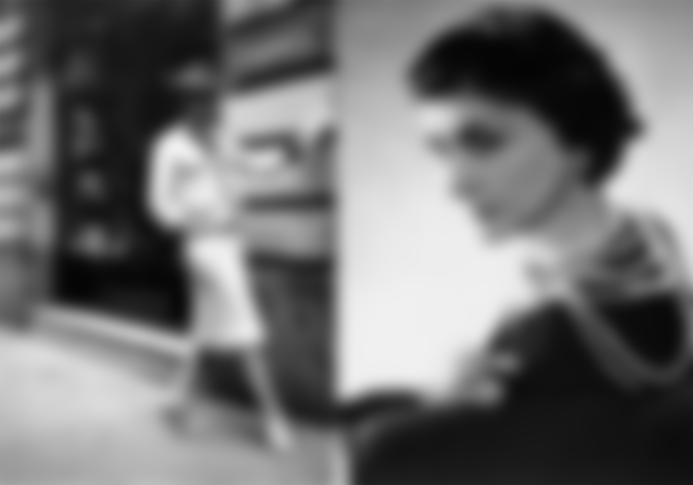While many were listening and waiting for news from the front, all the battles were largely over. The open Franco-German conflict in 1940 lasted only a few weeks. Soon, Nazi troops, practically without resistance, marched into the then most beautiful city in Europe - Paris. Many residents of the city of light did not know what had befallen them, not realizing the new times brought by the occupying troops. Although French modern history from that period most often highlights the heroic examples of the French resistance movement, that period is also remembered by a large number of French people who, more or less voluntarily, reluctantly accepted the German occupation, trying to adjust their lives to the new order. To this day, the cooperation of prominent French figures with the Nazi occupiers has remained somewhat taboo, and in the decades since the end of the conflict, it seems that the truth has been sacrificed for the sake of national unity.

One of the symbols of Paris, both pre-war and post-war, was definitely the greatest creator of the twentieth century, Coco Chanel. The pre-war part of her life is poorly documented. Growing up without parents and the hardships she had to go through - from an orphanage in the province to the lascivious entertainment scene of the French capital at the turn of the century - all became part of the mythology of the creator, who more or less dramatized the story itself, depending on need or inspiration. . We know incomparably more about "Madmazel Chanel" and her life after the Second World War, especially since, a decade after the end of the war, she returned to Paris The Chanel brand soon became global, and was on its way to becoming, along with Coca-Cola and McDonald's, the most recognizable global brand of the 20th century. But the fate and life of Coco Chanel during the occupation of her homeland has always been shrouded in mystery. It was only after her death, in 1971, that her role in the Nazi intelligence machinery became louder, but also the ways in which Coco tried to become the 100% owner of one of the largest money factories - the Chanel fashion line and all its products.

After opening its first boutique in Paris in 1913, Coco Chanel became one of the more prominent names in the rich Parisian fashion scene. Although her customers were initially exclusively ladies from the highest Parisian circles, Koko has always wanted her creations to become much more popular, but also to become an everyday style, more than "clothes for special occasions". She wanted to bring to women's fashion a characteristic that she had lacked for centuries - comfort.

She would probably have been remembered as one of the local fashion legends of Paris, had she not appeared in 1922 at horse races at the hippodrome behind the Boulogne Forest. There, a fateful meeting took place between Coco Chanel, a revolutionary designer and a successful business woman, and Pierre Wertheimer, a Jewish businessman who had already achieved serious success in trade. Koko and Pierre found a common language, and in 1924 a joint venture, Chanel Perfumes, was created. According to the agreement at the time, the Wertheimer family was obliged to provide all the finances for production, distribution and marketing, while Koko gave the company its name, but also the image it carried with it, as well as an inexhaustible source in the form of its creations. The division of ownership, in which the Wertheimer family owned 70 percent, while Koko owned only one-tenth of the company, without any decision-making rights, has long been a cause of conflict between co-owners. This did not prevent their most popular product, the perfume "Chanel no.5", from becoming one of the first true, global, fashion blockbusters. Although the first attempts to take control, or at least a larger share in it, were made by Koko back in 1934, only the Nazi occupation of the creators will provide an opportunity to expel a Jewish merchant family from work.
Nazis!

Koko spent most of the war living on the top floor of the super-luxurious Hotel Ric in Paris, which at the time was a gathering place for top German army and German politicians. Goebbels and Himmler also spent Paris nights there, as well as numerous high-ranking officers who considered every transfer to Paris a reward, especially since the icy Eastern Front began to appear as an option. At the time, Coco was in a love affair with Baron von Dinklage, a German intelligence officer. It was a connection that, in addition to physical protection, enabled the creator unhindered access to the highest circles of the German administration in France, and a good position to finally take control of the company that bore her name. Shortly after the beginning of the German occupation, Nazi racial laws came into force, according to which all business owned by Jews practically lost its owner. Koko wanted to use this circumstance and try to take over the "Chanel" brand. The Wertheimer family left France and fled to New York, where they tried to continue the production of the company's most popular product, the perfume "Chanel no.5". Therefore, Koko claimed that the business, although still in the hands of Wertheimer, "legally, is considered abandoned by the previous owners, the Jews."
Grand League Games!
The response of the authorities was unpleasantly surprised by Coco Chanel. Namely, before leaving France, the Wertheimers transferred all property rights to Felix Ami, a businessman who had no obstacles to being the owner of the company even under Nazi rule, and the company did not fall under the jurisdiction of the bodies dealing with the confiscation of Jewish property. However, during much of the occupation, Coco was de facto the sole owner of the company in France, while the company of the same name, controlled by Wertheimer, across the ocean, continued to produce and sell the famous perfume "Chanel no.5", but also other products In addition to her business life, or precisely because of it, Coco Chanel, according to documents available today, also played a very controversial role on the exciting European spy-intelligence scene during World War II. Although most documents portray her as a volunteer collaborator of German intelligence, her good connections with high British circles, and her ability to transmit information between warring parties, brought her protection after the war, which, according to some claims, Churchill himself guaranteed.

After the expulsion of German troops from France and the end of the occupation, Coco Chanel, faced with numerous accusations, went to Switzerland. The Wertheimers, who returned to Paris, regained ownership of the company "Chanel Perfumes" from Felix Ami, and before them was a legal battle for parts of the company that, during the occupation, transferred to Chanel. The legal battle that was being prepared immediately after the end of the military conflict, attracted the attention of the entire business world. But the outcome of that battle few could have predicted. Realizing that an open fight against the creator, with the removal of "dirty laundry" and the emphasis on her collaborating role, would greatly damage the brand he owned, Pierre Wertheimer put the company's interests first. Thus came one of the wisest business moves of the 20th century. The trial between the business partners ended on May 17, 1947 with an agreement that would make Wertheimers one of the richest families in Europe to this day, while Coco Chanel, an orphan from a French province, would become one of the richest women in the world, removing the stigma of a Nazi collaborator.
Final contract!
It was agreed to revise the contract from 1924, and in addition, the creator was paid a percentage that was a million) from the sale of the famous "No.5" perfume during the war years. In addition, Coco Chanel received the rights to 2 percent of the total world sales of "Chanel no.5", which was estimated to bring her about 25 million dollars a year. Characteristic is the item taken into the contract at the request of Coco Chanel, according to which the Wertheimer family will bear all the costs of the creator's life, from completely insignificant to luxurious, as long as she is alive. This unusual article of the contract was the basis for a new partnership between a large trading family and a talented designer. After the business empire was re-established, Coco had only one wish - to return to Paris. Although public opinion had been preparing for her return for years, it took nine years until Koko really decided to leave her Swiss home and return to Paris. In 1954, after somewhat forgotten investigations into collaborationists, of which she was the subject, Coco Chanel, aided by Wertheimer's connections and money, spectacularly returned to the capital of fashion. A new stage in the development of the company "Chanel" has begun, in fashion in general, but also in the life of the most famous designer.





A good article about an impressive lady